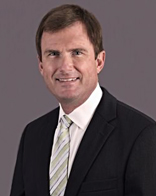 Blake Long, MD, MBA ’15
Blake Long, MD, MBA ’15
HSM ‘16 (expected)
Chief Clinical Officer
Mosaic Health Solutions
Name a health care company you think is doing exciting work, and why?
IBM Watson is not thought of as a health care company, but it is one of several that are emerging from outside of traditional health care and initiating a wave of disruptive innovation. The explosion of new scientific knowledge is generating increasing complexity and presenting challenges for clinical decision making and the provision of clinical care. Managing this “big data” and converting it into actionable knowledge requires this type of analytics. However, it becomes a very powerful tool in the physician’s “black bag” and will augment their central role of humanizing and personalizing knowledge for patients.
What does the future of health care services look like to physicians and providers?
To many physicians and providers, the future looks very dismal with increasing pressures on time, frustration with administrative complexities, and declining reimbursement and remuneration. The shift toward assuming financial risk also looks formidable. However, significant innovations are emerging that will provide the tools and technologies for assisting physicians and providers in understanding risk, and the opportunity for meaningful intervention at both the population and individual patient level. More importantly, many of the innovations will automate or assume much of the process flow and project management type of work that overwhelms them currently. With care occurring on an ongoing basis, the pressure for physicians to accomplish the bulk of care in a compressed time frame will diminish, and allow them to focus on decisions and relationships with patients. With the move to assuming full risk in the proper sense, providers can focus on outcomes and be rewarded for what is really the essence of good care: the best outcome for the patient. In addition, the emerging team provision of care presents an exciting opportunity for physicians to resume roles of leadership.
Individuals are becoming more involved consumers of health and wellness. What opportunities do you see in response to the growing attention to consumerism in health care?
From the consumer’s perspective, the location of care is shifting away from the office or hospital, and the timing is occurring on a more continuous basis. Consumers will be much more involved in gathering data and information about their health, sharing this with providers and others, and engaging with a myriad of providers and technologies. This is increasingly manifest by innovations in remote monitoring, mobile and telehealth, retail clinics, and home “hospitalization.” The challenge for consumer involvement will be incorporating health care into their daily life and individual “workflow.”
Which class or professor from Fuqua do you feel was most useful in preparing you for your career, and why?
While several were very useful in my preparation, I would give the nod to Peter Ubel and David Ridley. Having practiced medicine for many years, I naively thought that I was familiar with the health care system. However, they challenged my knowledge base, exposed the system’s complexity, provided a new framework for analysis, and helped me to examine many aspects in more depth.
What do you wish you knew at the start of your career that took years to understand?
I wish that I had a better understanding of the health care system outside of the clinical setting and how much that sphere influences what happens in the examination room.
About Dr. Long:
As Chief Clinical Officer of Mosaic Health Solutions, Blake Long helps Mosaic’s portfolio companies tackle cost and quality challenges as they serve insurers, employers, doctors and hospitals. He also provides clinical and medical insights into the evaluation of investment opportunities.
Prior to joining Mosaic in 2015, Dr. Long served as a practicing physician at Savannah Children’s Heart Center and as a clinical professor at Mercer University School of Medicine. He also served as director of life sciences for Ariel Southeast Angel Partners, managing evaluation and implementation of investments in health care and life sciences. Previous roles have included chief medical officer and chairman of pediatrics in health care systems in Georgia.
Dr. Long earned his BA and his MD from Duke University. He completed his residency in pediatrics at Walter Reed Army Medical Center, and served in Desert Shield/Storm. He received his MBA from Duke’s Fuqua School of Business in December of 2015.
Dr. Long and his wife have three adult daughters. In his spare time, he enjoys reading, cycling and traveling.
